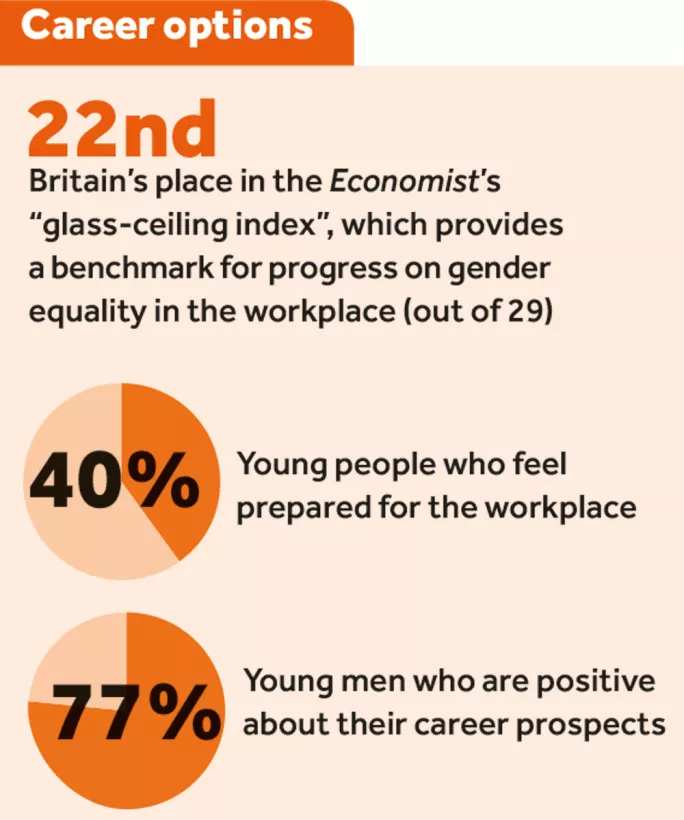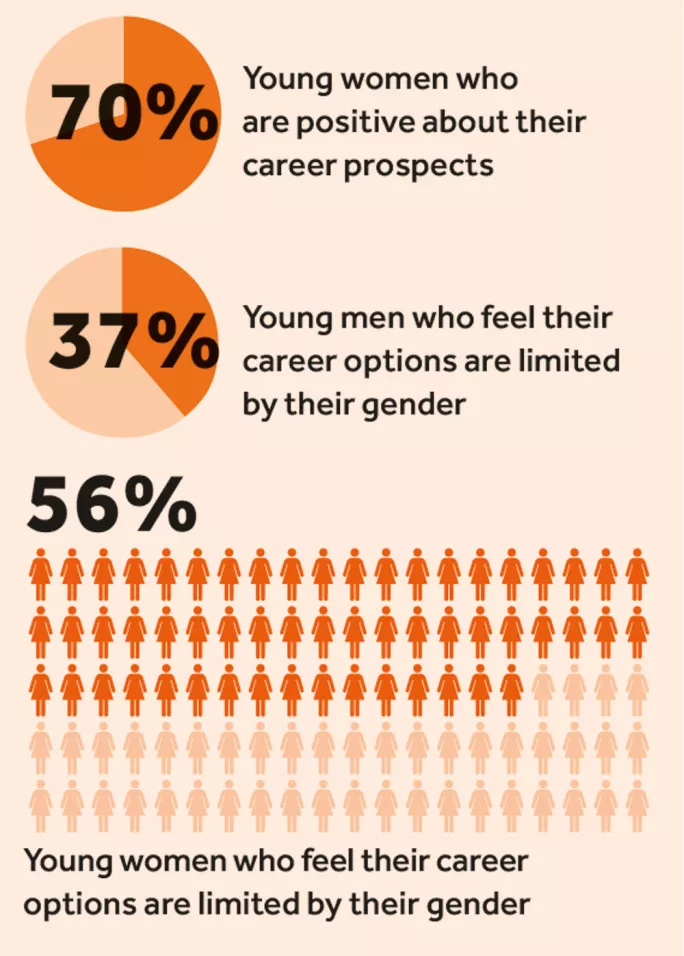
‘You have to reflect the diversity you want to create’

Young people are often thought to be much more liberal than their parents.
However, a new report by WorldSkills UK and the Careers and Enterprise Company (CEC), Closing the Gender Gap, finds that gendered stereotypes are still embedded in the career choices young women are most likely to consider.
The survey of 2,000 young people found that women are much more likely to consider care-related jobs such as teaching and being a nurse, while young men are more likely to opt for jobs such as being an engineer or an IT professional.
This contrasts with a previous study by WorldSkills, which shows that 93 per cent of parents would support their child pursuing a career not traditionally associated with their gender - a female bricklayer or male beautician, for instance.

Crucially, according to the new report, young women are also more likely to say that there are jobs it would be harder to get because of their gender. “More than half of the young women surveyed, 56 per cent, feel their career options are limited by their gender. This compares to just 37 per cent of young men,” says the report (see graphic, right). It adds that young men are also more likely to consider technical and vocational education than young women - 40 per cent compared with 32 per cent.
A huge opportunity
Dr Neil Bentley, chief executive of WorldSkills UK, says that the report should act as a “wake-up call”.
He adds: “I found it particularly shocking that it was young people themselves who had these views. You might have an expectation that young people would be more liberal in their outlook.”
Bentley says there is a huge opportunity to change attitudes with the government’s apprenticeships drive, adding: “Without a shadow of a doubt, the expansion of apprenticeships will help with the gender gap.”
But the ingrained perceptions highlighted in the WorldSkills report also create a cycle when it comes to the gender pay gap, given the career paths young women are considering are generally lower paid. Claudia Harris, chief executive of the CEC, says that the findings are surprising and serious.
“It shows progress is not inevitable. The gender pay gap can be explained by differences in the types of jobs women do,” she says. “It’s important to get female role models into schools - you have to reflect the diversity you want to create”.


Bentley adds: “One of the biggest issues is that we don’t see enough role models in apprenticeships. Young people are so receptive to role models. They tend only to be a couple of years older and there’s nothing like hearing it straight from the horse’s mouth.”
The report, published today, echoes this and highlights that young people are more likely to feel informed if they speak to someone who is currently undertaking an apprenticeship.
Rules announced last month, as part of the government’s updated careers guidance, say that colleges must appoint a careers leader to head up their careers programme. The new guidelines require college students to be offered two “meaningful encounters” a year with an employer by the end of 2020. The guidance is based on research from the Gatsby Charitable Foundation that sets encounters with workplaces as one of its eight key benchmarks that define world-class careers guidance.
However, the report by WorldSkills UK and the CEC finds that less than a third of young people say that they have met someone from the world of work, though this was the type of careers advice and information that both young men and women were most likely to access. Only 9 per cent of those surveyed have talked to a current apprentice.
Rachel Carr, a systems engineer at BAE Systems, went straight from college into an apprenticeship 11 years ago. “I think the lack of information doesn’t help at all,” she says. “I do feel things are changing, but it’s going to be a slow burner.
“Young people listen to other young people. More women are coming up to me at careers events and asking about what I do. A lot are surprised at what they can do.”
College student Betsy Crosbie competed at the WorldSkills final in Abu Dhabi last year, bringing home a coveted Medallion of Excellence and being one of only a few female competitors in the mechanical engineering: computer aided design (CAD) category.
“When I was at school there was no one who came in to talk about skills. You need to give young people the information about the options. It was all focused on university,” says the New College Lanarkshire student.
“I went back to my old high school and told them about my journey - I think it gave people a feeling that you can do that too and end up competing in WorldSkills.”
Published last December, the government’s Careers Strategy states that one of its aims is to ensure “subject and career choices are free from gender bias and people look beyond their immediate environment to new possibilities”.
A government spokesperson says: “We want to raise aspirations so that career choices are free from gender bias. In 2017, we announced £84 million funding in computer science to increased uptake and participation with a particular focus on girls.
“The Department for Business, Energy and Industrial Strategy also funds the Stem Ambassador programme - a UK-wide network of over 30,000 volunteers from a wide range of employers - and 42 per cent of their ambassadors are women.”
You need a Tes subscription to read this article
Subscribe now to read this article and get other subscriber-only content:
- Unlimited access to all Tes magazine content
- Exclusive subscriber-only stories
- Award-winning email newsletters
- Unlimited access to all Tes magazine content
- Exclusive subscriber-only stories
- Award-winning email newsletters
You need a subscription to read this article
Subscribe now to read this article and get other subscriber-only content, including:
- Unlimited access to all Tes magazine content
- Exclusive subscriber-only stories
- Award-winning email newsletters
- Unlimited access to all Tes magazine content
- Exclusive subscriber-only stories
- Award-winning email newsletters